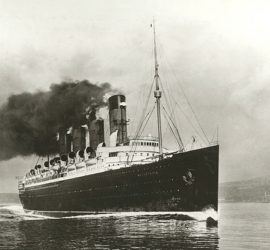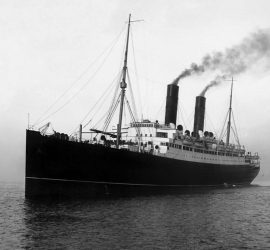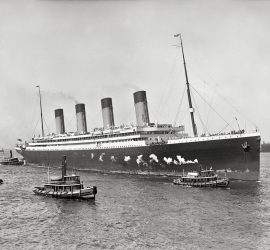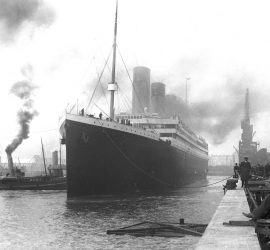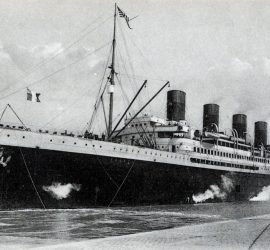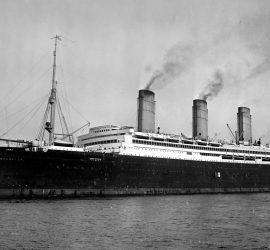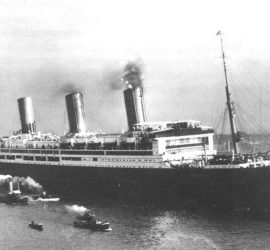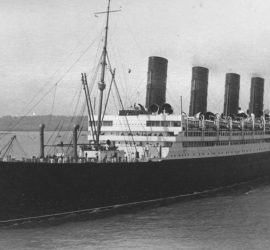1907 – 1934 / The legendary Mauretania saw an amazing career during peace as well as war, and held the Blue Riband for more than 20 years. She became one of the most famous Cunard ships of all time.
Monthly archives: March 2018
1909 – 1917 / As part of an experiment that would decide the engine arrangements for the Olympic-class, the Laurentic had a successful, albeit brief career that ended when she was sunk during World War I, while carrying a precious cargo of gold.
1909 – 1933 / The second part in the test that would determine the engines of the Olympic-class, the Megantic was less efficient but more fortunate than her sister. She survived wartime duties, returned to civilian traffic and was eventually scrapped in Japan.
1911 – 1916 / Commissioned as a slightly less glamorous support ship to her larger fleet mates, the Franconia served her Cunard owners well until she was torpedoed and sunk off Malta during World War I.
1911 – 1935 / The first and most prosperous of White Star Line’s amazing trio, the Olympic would serve in both peace and war, eventually earning the nickname ‘Old Reliable’.
1912 / The second of the Olympic-class trio, the name Titanic would become synonymous with hubris and tragedy when she struck an iceberg and went down on her maiden voyage, resulting in great loss of life.
1912 – 1935 / As the only French liner to sport four funnels, the second France was also noteworthy for her lavish interiors. She survived World War I, serving as an auxiliary cruiser, a troop transport and a hospital ship.
1913 – 1938 / Also known as Berengaria / The first of Germany’s great pre-war trio, their defeat in World War I saw the ship transferred to Cunard ownership and given a new name. She flew the British flag for the rest of her career, and was sold to Jarrow shipbreakers in 1938.
1914 – 1938 / Also known as Leviathan / The second ship of the great HAPAG trio, Vaterland was seized and used as the allied troop transport USS Leviathan during World War I. Handed over to the United States Lines after the war, she became the company flagship and the largest ship in the US merchant fleet.
1914 – 1950 / A unique vessel in the Cunard fleet, the Aquitania was commissioned as a larger but slightly slower companion to the Mauretania and Lusitania. She enjoyed a long, profitable career and saw military service in two world wars.

